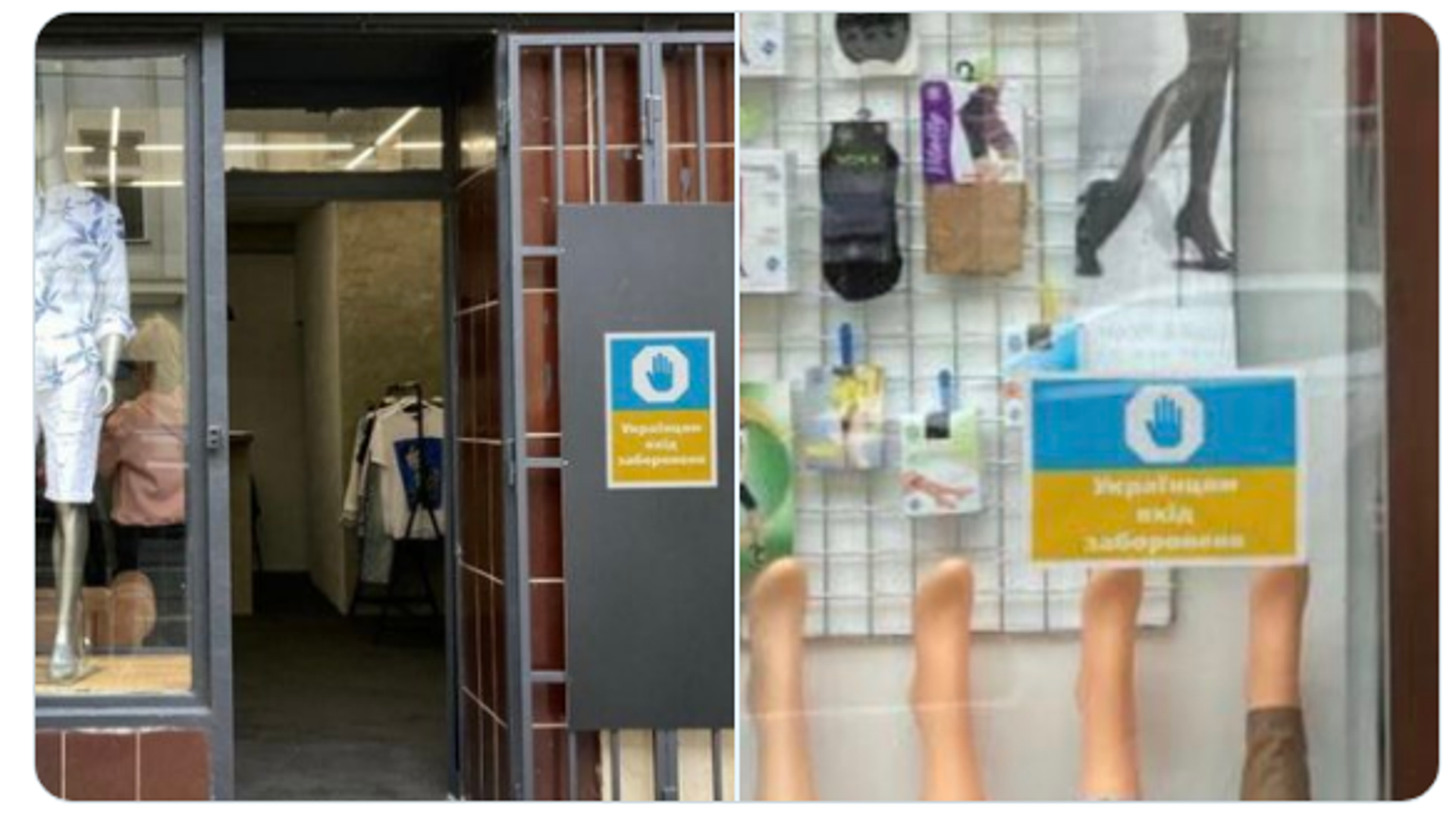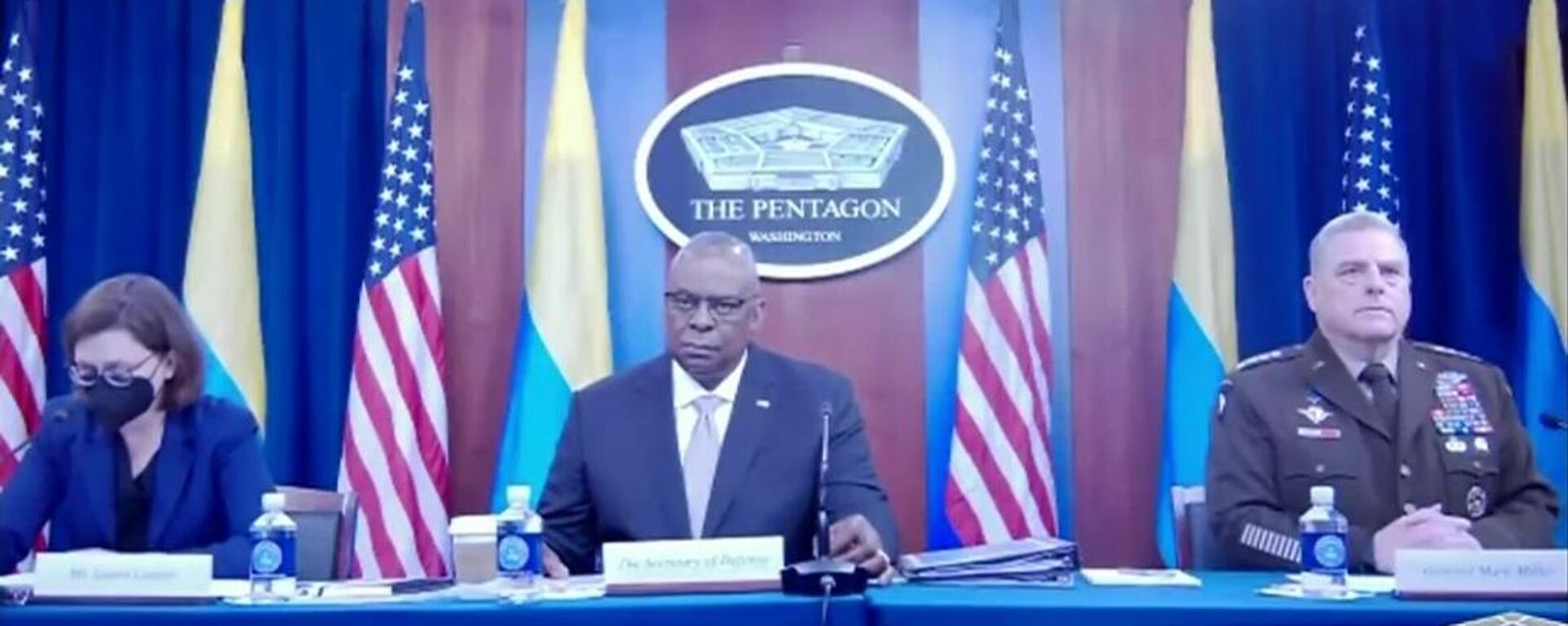The Europe of Solidarity? Prague Shops Display 'No Ukrainians' Signs While Roma Unwelcome
12:40 GMT 26.05.2022 (Updated: 17:07 GMT 22.07.2023)
Subscribe
The Czech Republic has issued more than 350,000 emergency visas to Ukrainians seeking refuge in the West. It has also donated 96 tanks and infantry fighting vehicles plus self-propelled howitzers and multiple rocket launchers (MRLs), along with 160 shoulder-launched surface-to-air missiles to the Kiev regime.
Europe's solidarity with the Ukraine is wearing thin, according to new reports from the Czech Republic and Germany.
Shops in the Czech capital of Prague have begun putting up signs reading "No entry to Ukrainians" — in the colours of the Ukrainian flag — reportedly following a series of alleged thefts and Nazi graffiti incidents.
The xenophobic notices stand in stark contrast to official declarations of support from across the European Union (EU) and NATO for Ukraine amid Russia's special military operation and of welcome to refugees from the former Soviet republic.
Shopkeepers "complain about their behaviour and constant theft," reported Telegram channel ASB Military News on Thursday. "Many Landlords in the Czech Republic also specifically state they will not accept Ukrainian refugees as many apartments were reported vandalized with swastikas, robbed and destroyed."
Twitter users also posted photos of the signs and their own takes on the reasons behind them.
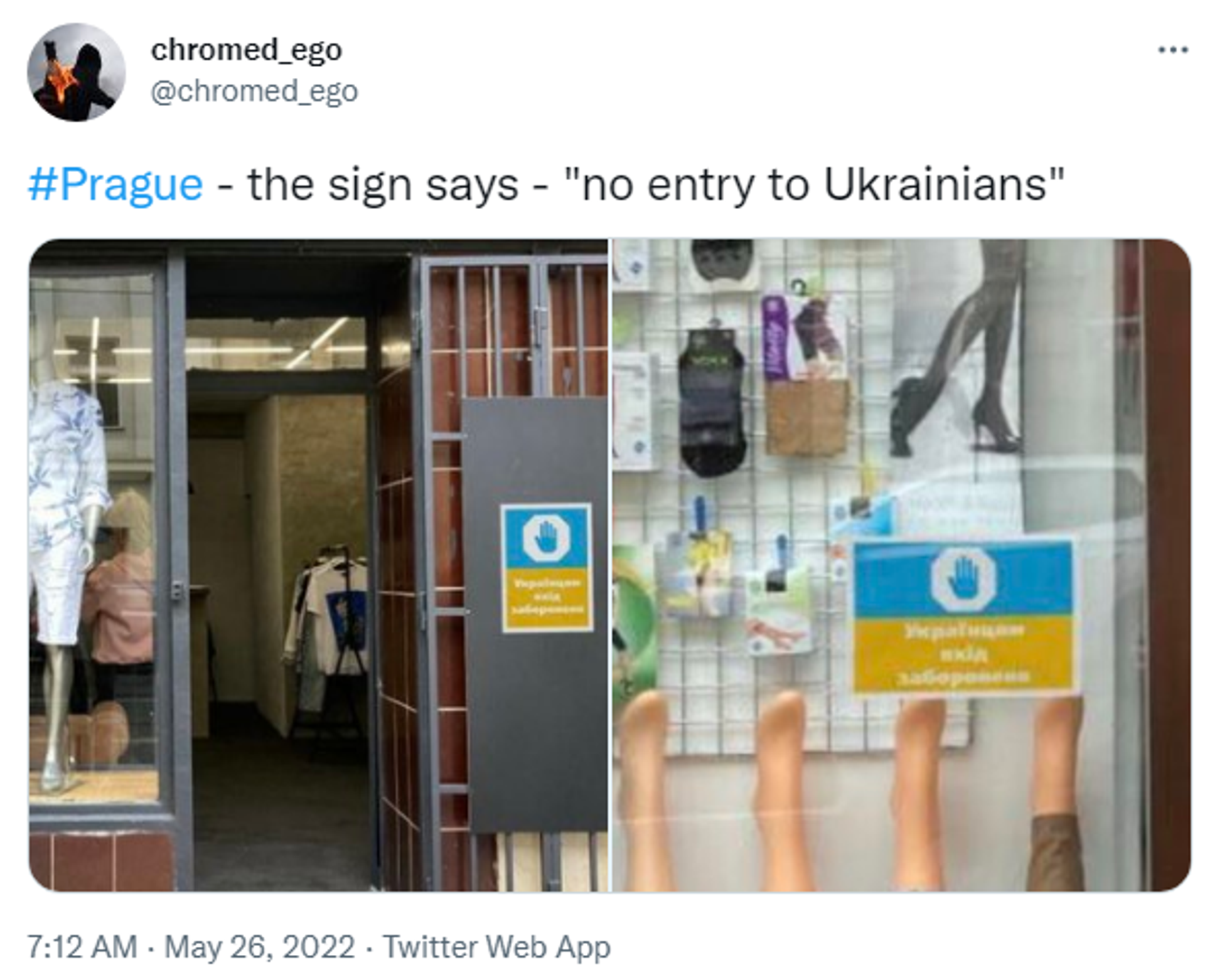
Tweeted images of "No entry to Ukrainians" signs outside shops in the Czech capital Prague
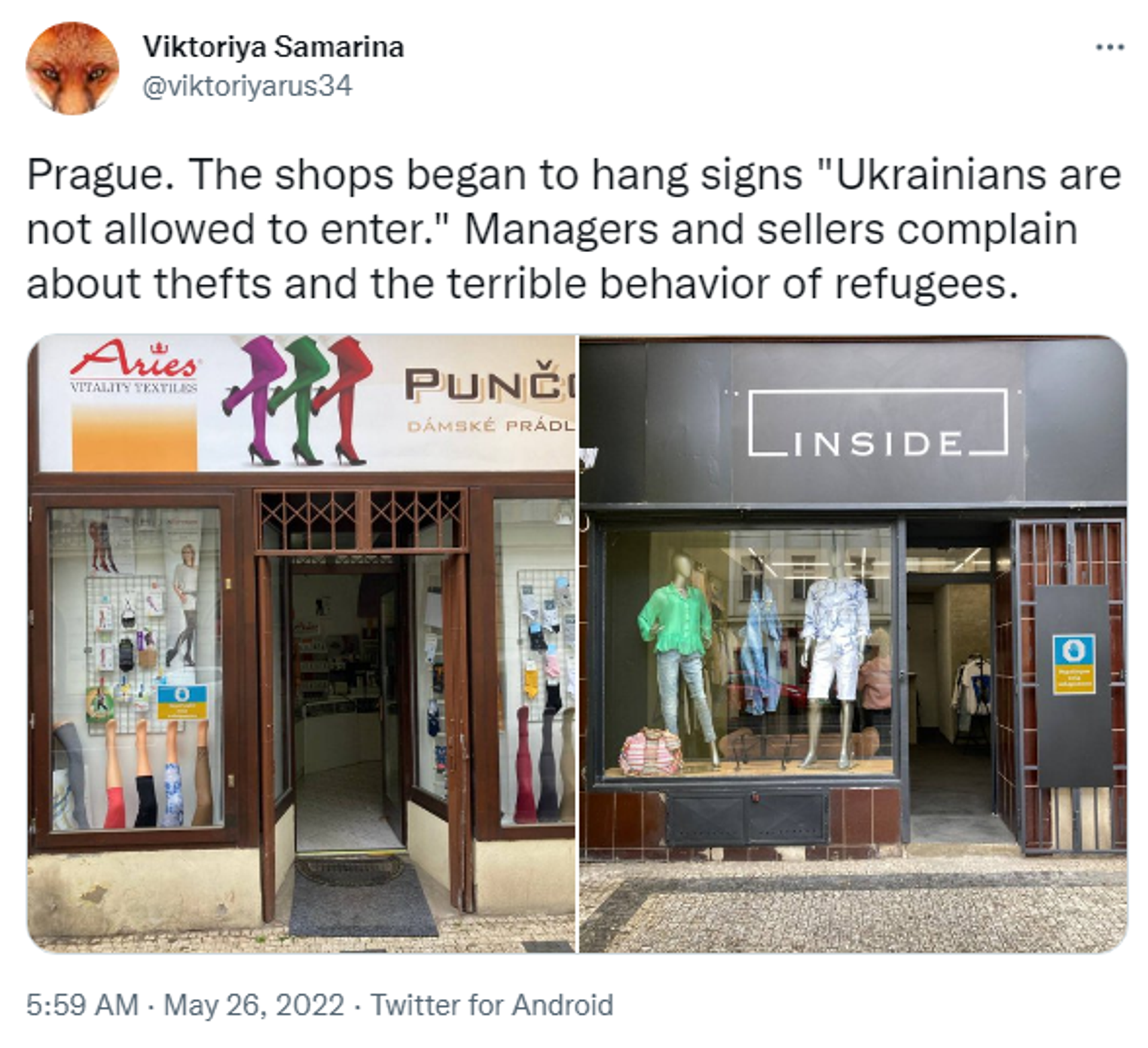
Tweeted images of "No entry to Ukrainians" signs outside shops in the Czech capital Prague
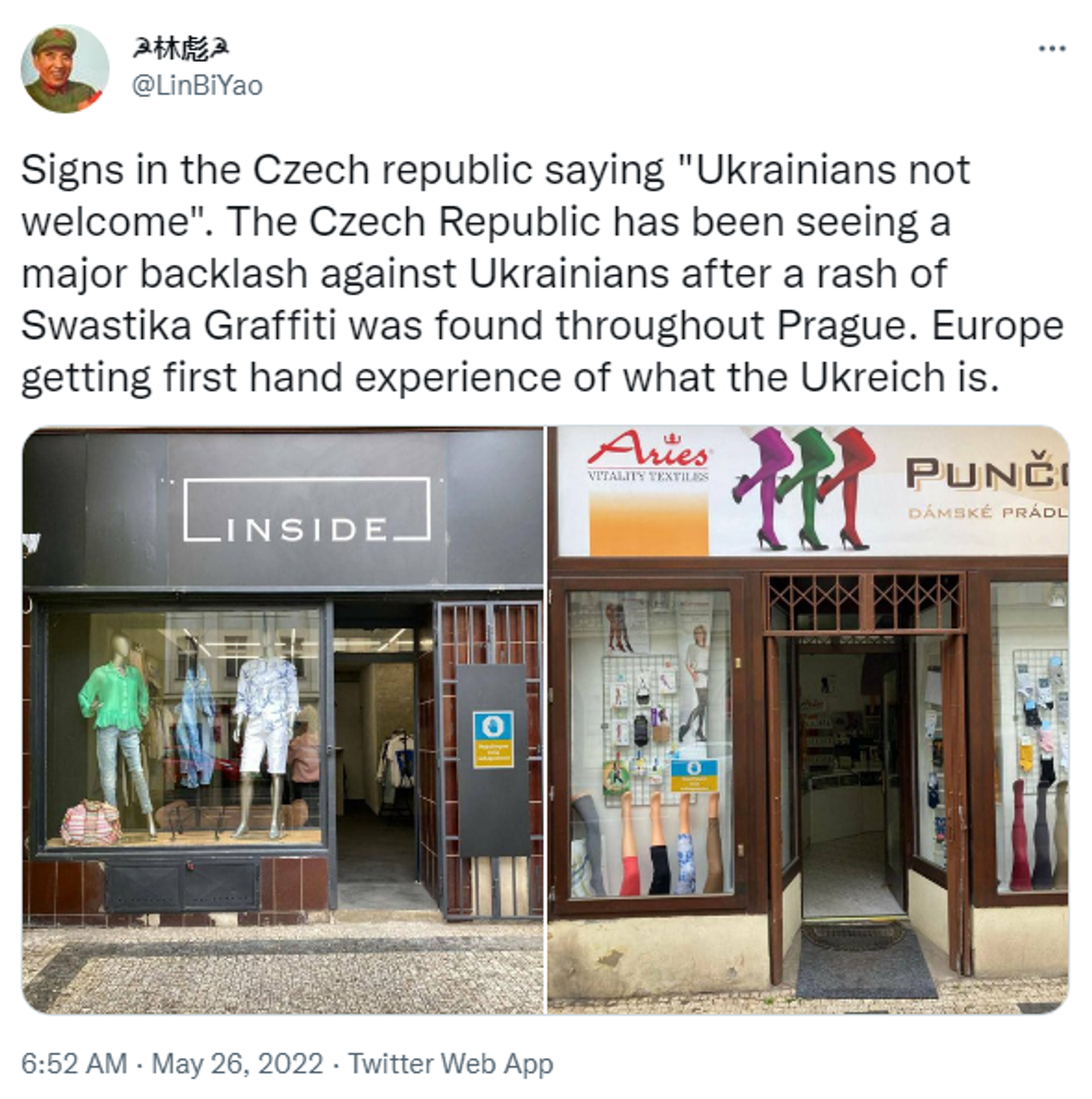
Tweeted images of "No entry to Ukrainians" signs outside shops in the Czech capital Prague
The Czech interior ministry said this week it had granted more than 350,000 emergency visas to Ukrainians who have left their country since the start of Russia's special military operation on 24 February.
The former Warsaw Pact country has also been one of the biggest donors of arms to the Kiev regime during the conflict, sending 96 tanks and infantry fighting vehicles plus self-propelled howitzers and multiple rocket launchers (MRLs), along with 160 shoulder-launched surface-to-air missiles.
Ukrainians paraded through Prague on Sunday to thank Czechs for that support.
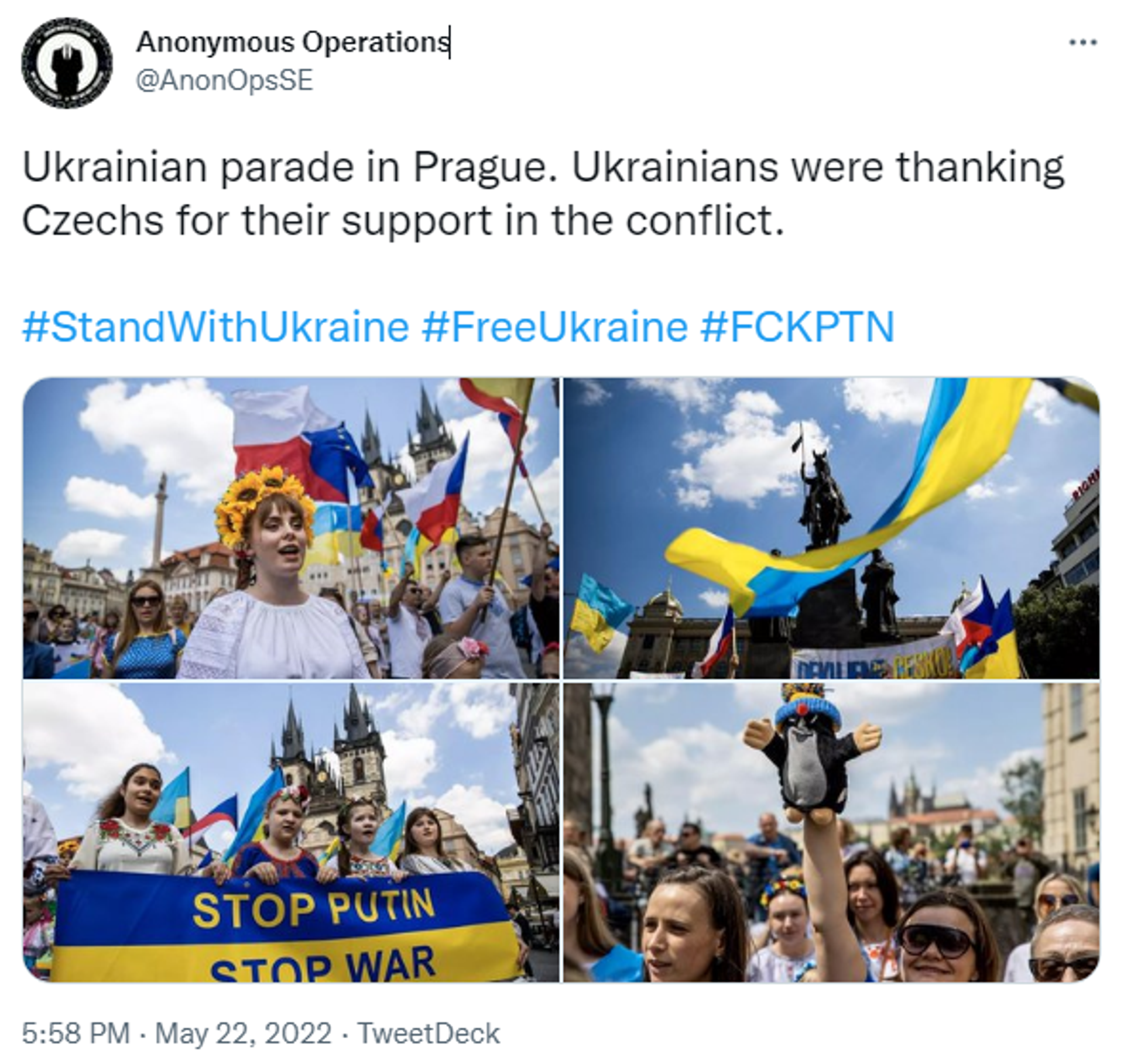
Tweeted images of a pro-Ukraine rally in the Czech capital Prague on Sunday May 22
Roma Refugees Turned Away
The Guardian reported on Wednesday that members of Ukraine's Roma gypsy minority — who are often persecuted by neo-Nazis in their own country — had found they were not welcome in the Czech Republic or neighbouring Germany.
More than 500 Roma refugees have been languishing for weeks in a reception centre at Prague's central railway station built to accommodate just 250 temporarily overnight. Some, including mothers with small children, were seen sleeping on the station platforms.
"We tried to register for refugee protection at the registration centre but they wouldn’t accept us and didn’t give us any document explaining why," said Zanna, a teenage mother of three children from Kiev who reached Prague with her family four days earlier. "We came here looking for a place to stay but instead we are just lying on the floor like dogs. We are exhausted and have no energy any more. I’m just feeling really hopeless."
Geti Mubeenová, a crisis coordinator for the Organisation for Aid to Refugees (OPU), said many Roma who recently left Prague to seek refuge in Germany had since returned, including some who said police stopped them from leaving their train in the city of Dresden.
"This is the most important situation in the Czech Republic," she said. "We were set up to provide information, but now we are dealing with a humanitarian crisis. It is no longer sustainable."
Mubeenová said she had noticed "the narrative changing" in recent meetings with the Prague city government and police, adding that "people stopped talking about refugees and started referring to ‘economic migrants’ and ‘welfare tourists’."
Part of the problem is that officials do not recognise some of the Roma as refugees, since they hold dual citizenship of Hungary, a fellow EU member state. But the aid worker said only one in five of those now in Prague had taken up Hungarian Prime Minister Viktor Orban's 2011 offer of citizenship to residents of the western Zakarpattia region of Ukraine.
"Representatives have told me that they don’t have the necessary documents to apply for protection, but they are often not even allowed to submit applications and that’s not legal," Mubeenová said.
Tense Relations
Tensions between citizens and recent Ukrainian arrivals have reportedly risen elsewhere in Europe.
A video circulated earlier this month claimed to show young Ukrainian men in the Polish capital Warsaw beating and stabbing a local man after he tried to stop them molesting a young woman.
This…
— 🔴⚪️💙 DEAN 🔴⚪️💙 (@777DEAN777) May 14, 2022
In Warsaw…
All Ukrainians are Great as far as You Know…
Drunk Ukrainian refugees beat a local man
He stood up for a girl who was being sexually harassed…
As a result, He was beaten …sustained multiple stab wounds…He then died on the spot... pic.twitter.com/YDIjOna3An
And in early May the war graves of Allied soldiers at the Jonkerbos cemetery in the Dutch town of Nijmegen were vandalised with graffiti of anti-Russian slogans and the colours of the Ukrainian flag, swastikas and the wolfsangel symbol used by Ukrainian neo-Nazi Azov Battalion.
An Irish government memo leaked last weekend warned that the influx of 30,000 Ukrainians — with 250 more expected every day — could increase homelessness and damage "social cohesion" in the country of 5 million inhabitants.
And in the UK, a man left his partner of ten years and two daughters for a younger Ukrainian woman, just ten days after welcoming her to their family home under the British government's £350-a-month 'Homes for Ukraine' scheme.
But Russia has taken in more than 1.4 million refugees from the Donetsk and Lugansk people's republics and Ukraine, according to the country's Emergencies Ministry.

